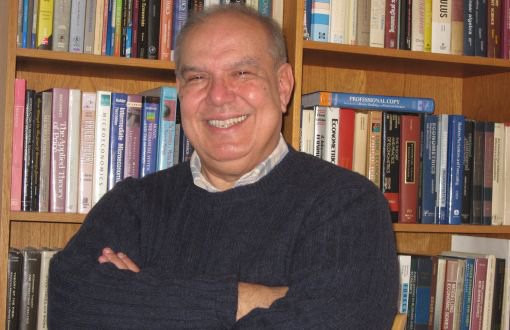Justice and Development Party (AKP) and Nationalist Movement Party (MHP) catch the attention in Trabzon (a province on the Black Sea coast). Some people told they had supported AKP but now they didn’t because of corruption and bribery, Recep Tayyip Erdoğan’s running election campaign and unemployment.
People who support AKP actually support Tayyip Erdoğan not the party itself. Those people think Erdoğan is a world leader. Others think Erdoğan exaggerated the “parallel structure” and went to extremes with the presidential palace.
"The budget spent for presidential palace is peanut”
A barber:
"I support AKP and the resolution process. Our soldiers are not dying anymore. I hope the presidential system will come and AKP will be the ruling party again. Many European countries and the U.S.A have the presidential system, why shouldn’t we have? I also criticize AKP. Economy isn’t going well in Trabzon. There aren’t any factories in here. However, there is no alternative of Erdoğan. The budget spent for his presidential palace is peanut. He is still the spiritual leader of AKP.”
"I wish MHP had Demirtaş as head of the party”
A tradesman:
"I had supported AKP in the past but now it’s useless. There is no justice, no money and enough tension. I support MHP now. I find Selahattin Demirtaş, leader of Peoples’ Democratic Party (HDP) so charismatic and I wish MHP had Demirtaş as head of the party. It would be great.”
"I don’t want Erdoğan to be the president”
A female technician:
"I think AKP failed in the field of economy and reconstruction. People who are partisan of AKP also are aware of these problems. I don’t support the presidential system and I don’t want Erdoğan to be the president.”
"AKP is spoilt"
An anonymous retired man:
"I once supported AKP but now I reckon that AKP is spoilt. AKP should be overthrown lest they put themselves in order. Erdoğan is running election campaign and wants the vote for AKP. How could he? I don’t believe in the promises of opposing parties. Let us hope for the best.”
"Enough with parallel structure"
A university student:
"I both like and criticize AKP. They are being offending. Enough with parallel structure. I’m not sure about the bribery and corruption operation but AKP should clear up the mess. Erdoğan went to extremes with presidential palace.”
"We are being threatened"
An accountant:
"I’m not sure whom I will vote for. I vote for anything but AKP. I’m fed up political issues. Besides, I feel threatened. All society and opponent people from legal authorities are oppressed. Violence against women increased and men leave unpunished. The state doesn’t protect women. Furthermore, they say women who laugh at among the society are immoral. They just trifle.” (EKN/BD)
* This tour has been made with the help of coordinatorship of P24.
Click here to read this article in Turkish







.jpg)


